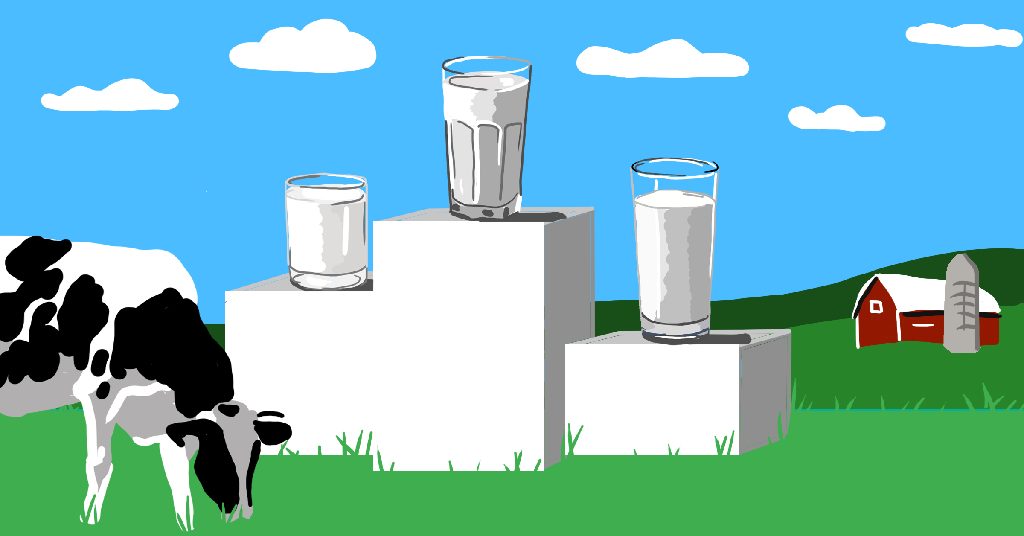Upstate Farms, a cooperative group of 340 family-owned farmers across New York, won gold for Best Fluid Milk at the annual dairy day at the New York State Fair, representing the cream of the crop as dairy producers.
Cornell’s Milk Quality Improvement Program has judged the annual dairy competition since the competition’s founding in 1997 — and has long contributed to the food science practices behind dairy production in New York through shelf life studies. The dairy industry is the largest sector of New York’s agricultural economy.
“A plethora of biological information goes into our research, as microbiology and sensory [attributes] are closely tied,” said Nicole Martin ’06, M.S. ’11, Ph.D. ’18, associate director of the Milk Quality Improvement Program. “Bacteria found in milk have different spoilage potentials. Sensory attributes [such as taste] tell us a lot about the mechanism of spoilage happening in the product.”
Martin emphasized that while milk is a food product with few observed foodborne-related illness outbreaks, the processing practices employed by dairy farmers across New York greatly impact the taste of milk.
One of the most significant tests overseen by the Milk Quality Improvement Program is polymerase chain reaction — the amplification of DNA — of milk samples to identify the content of spore-forming bacteria, which can contaminate the milk at the farm and later on contribute to milk spoilage.
These bacteria shut down their metabolic processes when experiencing environmental stresses, such as high temperatures, during pasteurization. According to Martin, spore-forming bacteria are the perfect trojan horse in milk production by escaping pasteurization.
Leaderboard 2
“If we get coagulation, whether without acid development, we know that it can be spore-forming bacteria,” Martin said. “And that in turn gives us insight into how we [can] resolve that spoilage.”
Other tests performed on milk samples include plating and counting psychotropic bacteria — those able to grow at 7 degrees celsius or higher temperatures, at which milk is often stored.
The most notorious milk bacteria Martin noted is pseudomonas azotoformans, which has been studied extensively by Martin and Prof. Kathryn Boor, food science and global development, dean of the Graduate School and vice provost for graduate education.
Newsletter Signup
According to the Milk Quality Improvement Program, molecular fingerprinting through genomic sequencing is a widely-used practice for farm-to-product source tracking and raw milk quality improvement.
“Aside from microbial load … there are also chemical mechanisms [of spoilage] that are not related to bacteria at all,” Martin said.
Martin explained that exposing milk to light may also trigger chemical reactions that cause the breakdown of essential nutrients — such as riboflavin — or may also result in rancid spoilage and off odors and flavors.
Milk quality and flavor research at Cornell was pioneered in 1964 by Prof. W Frank Shipe, food science, when he observed through surveys that half of all milk produced in New York at the time warranted consumer complaints.
More recently in May 2021, the importance of milk production surveys was observed through the containment of a listeria monocytogenes outbreak in Breese Hollow Dairy, a farm located in Hoosick Falls.
Recognizing the importance of improving milk production practices, the New York State Dairy Promotion Order was founded in May 1972 to increase advertising and research surrounding dairy production.
The Dairy Promotion Order has allowed for the development and existence of the Department of Food Science in the College of Agriculture and Life Sciences, and in turn the founding of the annual fluid milk competition.




